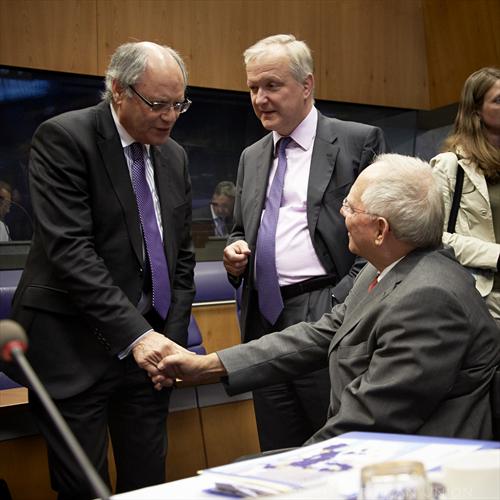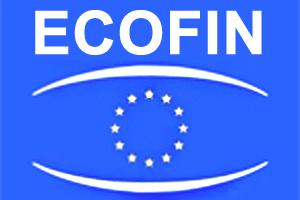On 20th June 2014, the Minister for Finance Professor Edward Scicluna, attended a meeting of the Economic and Financial Affairs Council in Luxembourg, where EU Ministers discussed various issues relating to economic governance and financial developments in the Union.
During the meeting, the Council reached political agreement on the proposed amendments to the Parent Subsidiary Directive.
The Parent–Subsidiary Directive, itself in force since the early nineties, forms an important component in facilitating cross-border dividend payments within the EU. It is designed to eliminate tax obstacles for profit distributions between parent companies and subsidiaries based in different Member States by mitigating economic and juridical double taxation on such profit distributions.
 In November 2013, the European Commission put forward a proposal to address a form of double non-taxation, being created by so-called “hybrid-loan arrangements”. Malta fully shares the objective that profits which have benefited from a deduction in the Member State of the subsidiary ought not escape taxation in the Member State of the parent and the Member State of its permanent establishment. Indeed, Malta had already addressed this issue in its domestic legislation, even before the Commission had issued its own proposal.
In November 2013, the European Commission put forward a proposal to address a form of double non-taxation, being created by so-called “hybrid-loan arrangements”. Malta fully shares the objective that profits which have benefited from a deduction in the Member State of the subsidiary ought not escape taxation in the Member State of the parent and the Member State of its permanent establishment. Indeed, Malta had already addressed this issue in its domestic legislation, even before the Commission had issued its own proposal.
Whilst Malta reiterated its support to closing this loophole at EU level, Malta also sought reassurance that the technical formulation of the last Presidency compromise text does not set a policy precedent for the future.
The Council and the Commission made a formal statement to this effect, on which basis Malta could support the political agreement. The statements, which are formally recorded in the Council minutes, reaffirm Member States’ competences in the area of direct taxation and the principle of subsidiarity, as recognised by the Treaty for the Functioning of the EU, and also clearly state that no precedent is being set through this proposal. During the meeting, Commissioner Semeta referred to the discussions with Minister Scicluna, and these clarifications were also reiterated by the Commissioner himself at the Council meeting.
“We are able to lift our country`s reservation once our legitimate concerns have been recognized and successfully addressed,” said Minister Scicluna during the Council meeting.
The Ministers also held a discussion on the Commission proposal for the 2015 annual Budget. The discussion was the classical one between net payers and net contributors. Malta supported the Commission proposal as it deems that this is a good basis for further discussions which will take place in the coming weeks and months under the Italian Presidency.
Other issues which were addressed by the Council were items under the European Semester. In this regard, Ministers discussed draft recommendations (Country-Specific Recommendations; hereinafter referred to as “CSRs”) to 26 Member States (all except Cyprus and Greece which are subject to macroeconomic adjustment programmes). This year’s CSRs for Malta have added flexibility whilst being less prescriptive in allowing the government to decide on the policy mix and necessary measures. The recommendations will now be further discussed at the General Affairs Council next week. The outcome of the GAC will then be discussed at next week’s European Council, which will be attended by the Prime Minister.
The Council also adopted a number of formal decisions on the Excessive Deficit Procedures (EDP) of a number of Member States, whilst also endorsed terms of reference on the review of the methodology for assessing effective action in the context of the excessive deficit procedure.
During the Council meeting, the European Commission also presented its Draft General Budget for 2015. Finally, Ministers approved a proposal for a recommendation to allow Lithuania to become the 19th member of the euro area. Pending approval by the European Council, which will meet next week, and final endorsement at the July ECOFIN session, Lithuania is now set to adopt the euro as its official currency on 1st January 2015.


As is customary, the ECOFIN Council meeting was preceded on 19th June 2014 by a meeting of the Eurogroup which, amongst others, took stock of the situation in a number of programme countries in the Eurozone. In their role of Governors of the European Stability Mechanism (ESM), Finance Ministers also approved the ESM Annual Report as part of the ESM Board of Governors meeting ahead of the Eurogroup session.
Minister Scicluna was accompanied by Malta’s Permanent Representative to the European Union; Ambassador Marlene Bonnici; the Permanent Secretary in the Ministry for Finance, Mr Alfred Camilleri, and Director General (Legal & International) within the Office of the Commissioner for Revenue, Mr Aldo Farrugia.
Friday, 20 June 2014